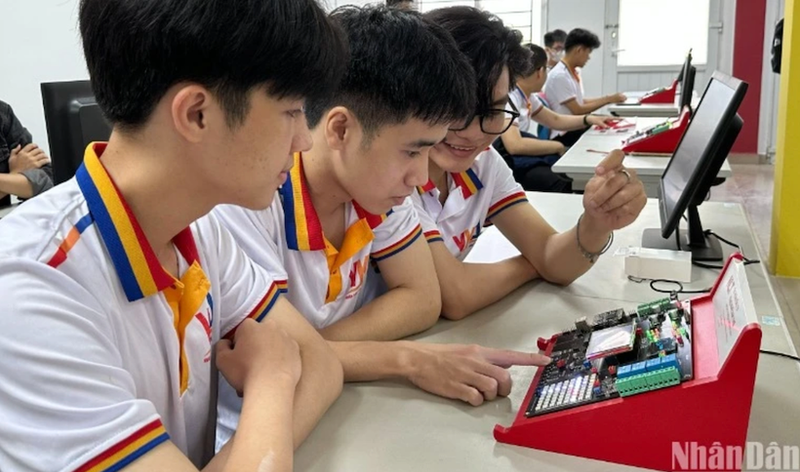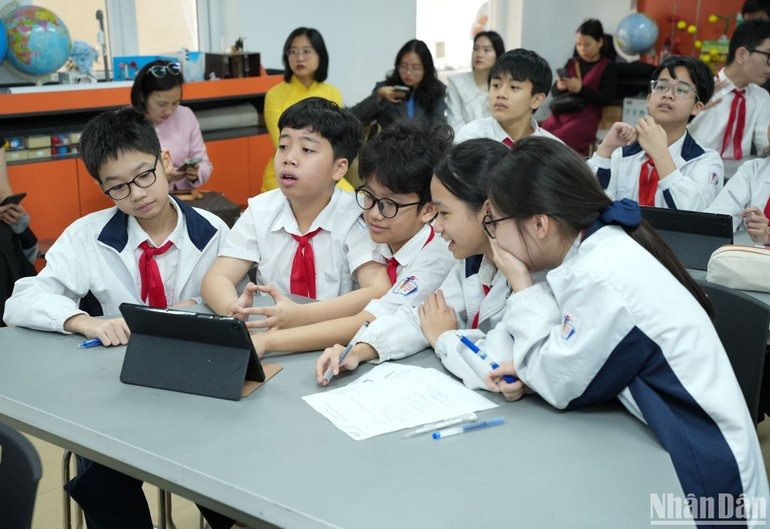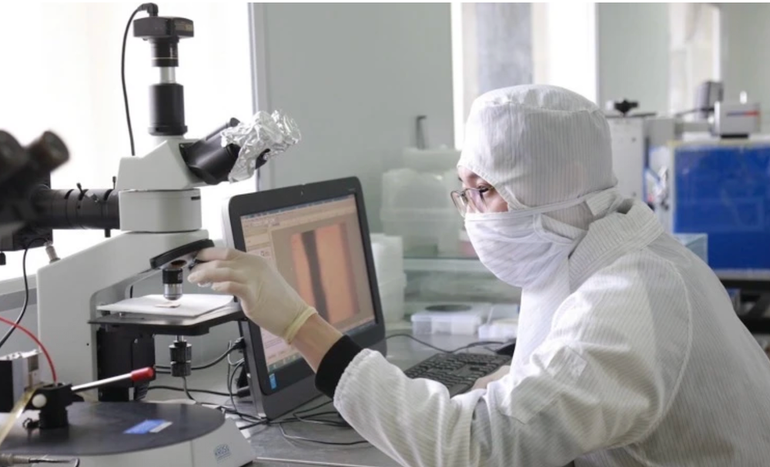Preferential policies in human resources training for basic sciences and high tech
Numerous policies related to the training and preparation of human resources for high-tech sectors have been issued and additional preferential policies are also being developed to support learners in basic sciences, key engineering and strategic technologies.

Strong growth in STEM human resources
At the regular Government press conference in June 2025, Standing Deputy Minister of Education and Training Pham Ngoc Thuong discussed the training and preparation of human resources for high-tech fields.
According to the Deputy Minister, improving public knowledge, fostering talent, and training skilled human resources remain core objectives of the education sector.
In recent years, the Ministry of Education and Training has paid close attention to STEM subjects – science, technology, engineering, and mathematics – from general education through to higher and postgraduate levels.
Deputy Minister Pham Ngoc Thuong noted that the ministry has advised the Prime Minister to approve Decision No. 1002/QD-TTg dated May 24, 2025, approving the project on training human resources to serve high-tech development for the 2025–2035 period, with a vision to 2045. This serves as an important foundation for implementing breakthrough solutions to develop STEM human resources in the near future.
In practice, the number of regular university admissions in 2024 increased compared to 2023. Specifically, enrolment in STEM fields rose by 10.6%, equivalent to over 60,000 students. Across the country, 218 institutions, including 158 public and 60 private, offered STEM training. A total of over 218,000 students were newly enrolled in 2024, accounting for about 36% of all university admissions nationwide. These figures reflect the positive impact of the Party and State’s policies on learners.
At the postgraduate level in 2024, the number of students in STEM fields continued to grow significantly: master's students increased by 34%, reaching nearly 20,000; doctoral candidates rose by 33%, with nearly 4,000 PhD students – about 600 more than in 2023.
Notably, 2025 marks the first year of graduates under the 2018 General Education Curriculum, which actively encourages students to pursue science, technology, engineering, and mathematics, leveraging Vietnamese students’ strengths – especially in mathematics.

While these are very encouraging signs, the proportion of students pursuing STEM in Viet Nam still ranges between 27% and 31%, lower than in several regional and global countries such as Singapore (46%), Malaysia (50%), the Republic of Korea (35%), Finland (36%), and Germany (39%). Thus, it is essential to continue investing in higher education institutions to boost training in STEM-related fields.
Around 19,000 students enrolled in semiconductor microcircuits.
Regarding semiconductor workforce training, the Prime Minister issued Decision No. 1017/QD-TTg on September 21, 2024, approving the Programme on Semiconductor Industry Human Resources Development to 2030, with a vision to 2050.
During the 2024–2025 academic year, approximately 19,000 students enrolled in fields relevant to semiconductors, making up about 10% of all STEM students.
Currently, 166 institutions offer training in semiconductor-related fields, including 97 institutions directly offering specialised programmes (66 public and 31 private). Many non-public universities such as CMC, Phenikaa and FPT are actively engaged in training semiconductor talent.
To ensure training quality, the Ministry of Education and Training has established an Advisory Council and an Appraisal Council to develop academic standards for bachelor’s and master’s degree programmes in semiconductors. Based on their recommendations, the Minister of Education and Training issued Decision No. 1314/QD-BGDDT dated May 13, 2025, officially promulgating the standards for undergraduate and master’s degree programmes in semiconductors.
“To date, more than 30 training programmes have been registered under Programme 1017, of which eight higher education institutions will implement them starting from the 2025–2026 academic year. At the same time, the ministry is finalising and will soon issue standards for gifted education in STEM fields as part of the Project under Decision No. 1002/QD-TTg,” said a representative from the Ministry of Education and Training.
Preferential treatment for learners
Regarding incentives for students in basic sciences, key engineering and strategic technologies, Deputy Minister Pham Ngoc Thuong noted that, following Resolution No. 57-NQ/TW dated December 22, 2024 of the Politburo on breakthroughs in science, technology, innovation and national digital transformation, and Resolution No. 71/NQ-CP dated April 1, 2025 of the Government amending and supplementing the Government’s Action Programme on implementing Resolution 57, the ministry is drafting a decree on scholarship policies for students in these fields. The draft is expected to be submitted to the Government in July 2025.

The draft decree focuses on scholarships for students, master’s candidates and doctoral candidates in the three fields highlighted in Resolution 57: basic sciences, key engineering, and strategic technologies – areas identified by the Party and the State as priorities for developing high-quality human resources.
The Ministry of Education and Training is also working with the Ministry of Finance to draft a decision of the Prime Ministerial on student loans for those studying STEM at all levels. This draft is currently under consultation and is expected to be submitted to the Prime Minister for approval in July 2025.
Additionally, the ministry is leading the development of scholarship policies for learners in basic sciences, key engineering and strategic technologies. It is expected to be submitted to the government for consideration and promulgation in 2025.








